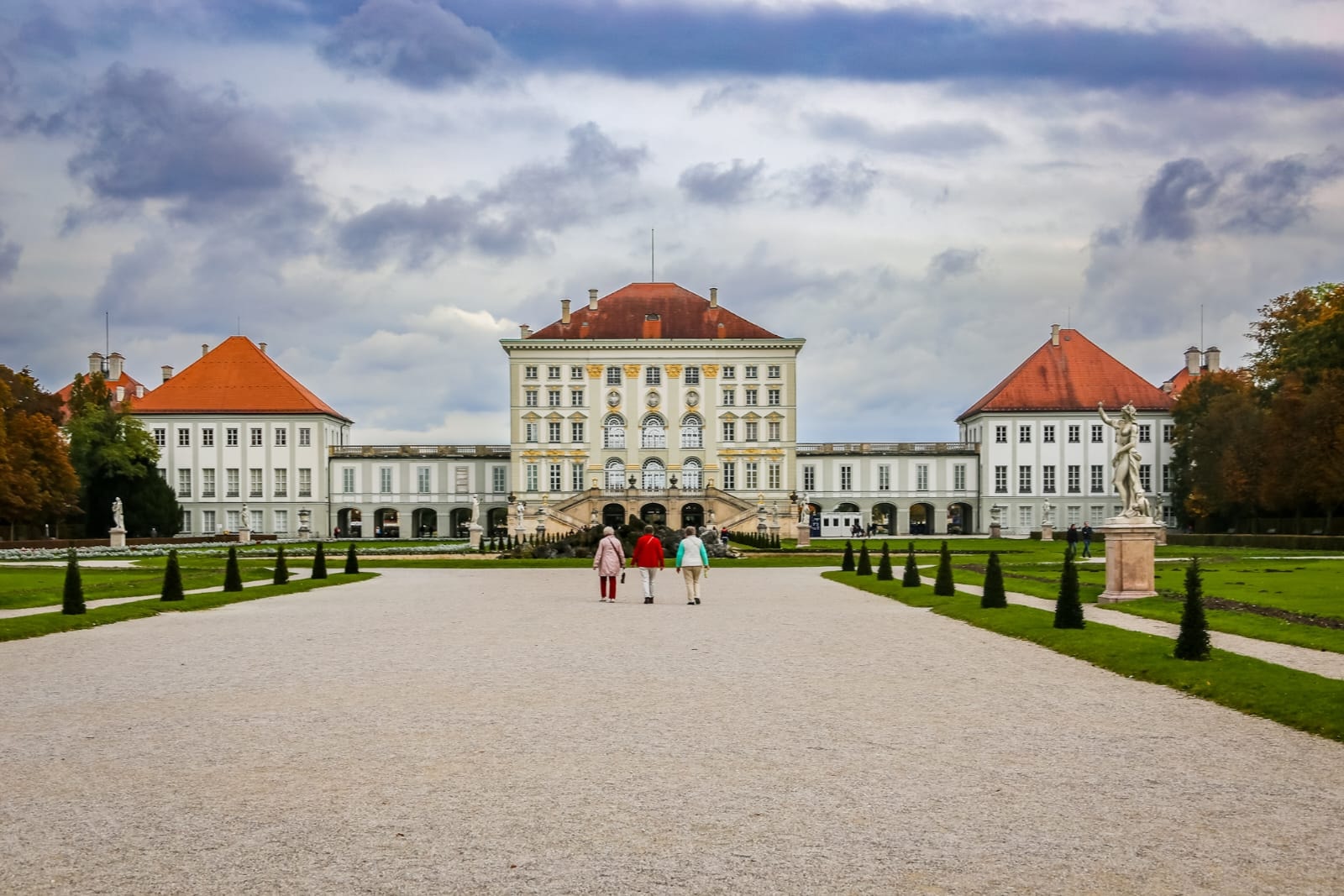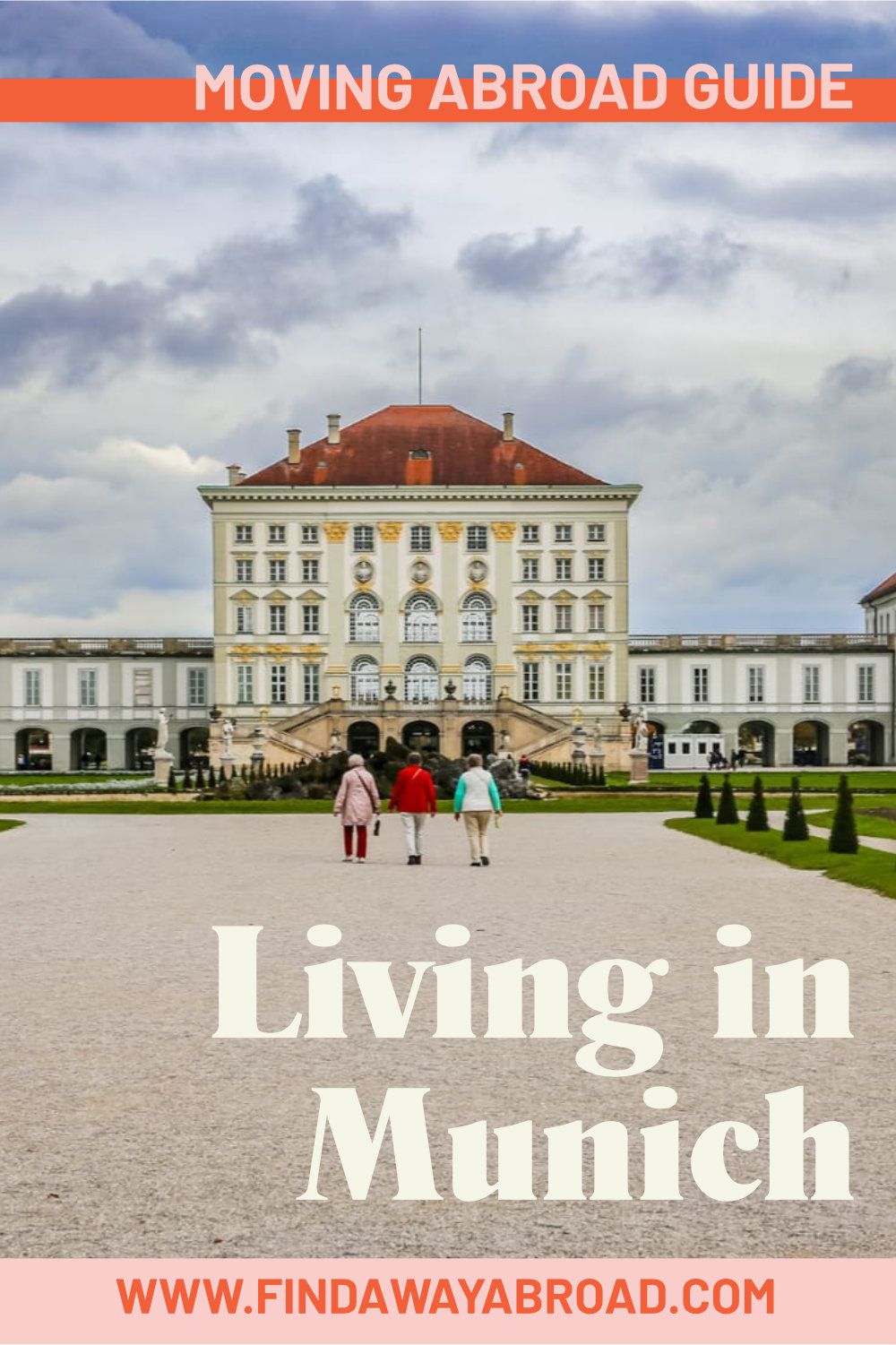Hello, world travelers! I'm Andie, originally from Texas, currently living in the Bavarian capital. In my opinion, Munich is the best German city for expats. Offering a unique blend of hot summers, snowy winters, stunning scenery, beer gardens and countless beer festivals, Munich is a charming city with something for everyone.
Living in Germany has always been a dream. Why, you ask?
Maybe it was the Disney-like castles, the harsh yet beautiful language, the Tracht, or the fact it's in the center of Europe. Either way, I'm 9 years deep and I have to say I am still very much in love with living in Munich.
But let’s be real, it wasn’t all sunshine and pretzels at the beginning.
Moving to Munich wasn’t easy, and the first few months were rough. I arrived here on an au pair visa, which at the time, was the fastest way I could figure out how to legally live and work abroad in Germany. From having my passport literally thrown at me in my face, to my host mom telling me not to come home until I stopped crying after saying goodbye to my mom at the train station. It was a rough start.
But I promise: it got a lot better.
Short on time? Here's the cheat sheet:
💭Living in Munich is ideal for those that are looking to move to a charming but vibrant city in the heart of Europe.
🏠A few of the best areas to live in Munich are Schwabing, Glockenbachviertel, and Maxvorstadt
🤕Don't rely on luck alone. SafetyWing now offers 2 types of Nomad Insurance coverage options: Essentials for travelers and Complete for expats and digital nomads.
🛂Most foreigners who live here are either on work visas or student visas.
💰Cost of living is considered to be high by most. Earn travel rewards on all expenses with a Capital One Venture Card.
📞Save the hassle of getting a local SIM or the cost of roaming with Airolo, an e-SIM that’ll have you connected from the moment you arrive.
☂️Although it can feel tough to make friends, especially with locals,
🏖️Munich offers a close knit community and a great work-life balance.
Moving to Munich: Where Do I Start?

Moving to Munich might seem complicated. Navigating the visa process, finding a job, renting an apartment, and making friends can feel like a lot but it's definitely doable.
As I stated before, my first visa was as an au pair which is just a fancy way of saying "live in nanny". I had a family sponsor my visa and my health insurance which are the two most important resources you need to have.
But after that contract was over, I had to figure out the rest myself. I basically started from the bottom of the job chain, getting any job I could just to stay. In Germany, it's important to find a job that is willing to sponsor you and many won't.
The local foreigners office (KVR) will handle all your visas and they will require a lot of paperwork - passport, application, university degree, letter of intent to hire and proof of health insurance to start. It also helps if you are enrolled in a German language course.
If you're looking at other visa options, Germany does have other allowances for professional job seekers, language learners, students and many more. I would look up the website for the German embassy in your country of residency to learn directly from the source the options available to you.
Cost of Living in Munich
Prices in Munich can add up. Here's what I'd recommend you come prepared for. Just know your lifestyle will dictate your exact expenses.
Rent
Munich can be an expensive city and come at a higher price tag than many other cities, especially when it comes to housing. On average, you can expect to pay around €1,200–€1,500 for a one-bedroom apartment in the city center, and a bit less in outer neighborhoods.
Popular areas to live in Munich include:
- Schwabing, which is close to the English Garden.
- Glockenbachviertel, which offers the perfect place for your evening walks along the Isar river.
- Maxvorstadt, a central neighborhood that's family friendly and full of art galleries.
It's best to be optimistic yet reasonable when looking into these areas though because they are in high demand.
Sometimes you get lucky, I'm currently living in Neuhausen-Nymphenburg which is near Schloss Nymphenburg and my base rent is about €1,200 for a 2-bedroom with a 5 minute walk to the s bahn.
It's important to know that the rental market is very competitive in Munich so make sure you give your housing search ample time to find a place.
Groceries
What I find comfort in is grocery prices, which are generally lower than in the U.S. With items like bread, cheese and fresh produce noticeably more affordable, though imported items can cost more.
I have definitely given up on my American products, I refuse to pay €10 for a box of Lucky Charms. Anyways, don't forget other bills tend to rack up as well but that is to be expected anywhere and it's not outrageous in my opinion.
Free Time
Going out can cost you though. Munich is a fancy city with a lot of mid to high-end bars. Cocktails in these places can cost upwards of €13-€16. Luckily, you are in the land of beer gardens where a giant 1-liter beer will cost you around €10.
That's not to say that there aren't more affordable bars to go to, Munich offers hip bars with divey vibes as well if that's your scene. Very edgy and trendy these days.
Best advice from a local? Save money.
Munich is one of the best cities to grab some drinks, your own food and meet at one of the many beautiful parks that are nestled throughout its narrow streets. Aside from the obvious English Garden, public spaces like Luipoldpark offer a view of the Alps, Olympiaberg has the best sunsets, and green spaces along the shore of the Isar that are perfect for summer nights.
These are the central areas to be for a cold beer and good conversation among friends.
What to Expect as a Foreigner Living Here

Munich is generally welcoming to expats. The English language is becoming more prominent among friend groups and companies are becoming more international.
Not totally convinced Munich is the German city for you? Also consider:
Making Friends
Thankfully, the expat groups in Munich are large and welcoming but it still gives off those “small village” vibes. Meaning, chances are someone you just met knows someone you already know. It’s tight-knit in a comforting way. The community is super open and always looking to expand, especially with new internationals.
I found most of my friends through Facebook groups. And trust me, there's a FB group for everything these days. What I also found helpful? Tinder and Bumble. I found my German husband and a good friend on Tinder. So don't be afraid to give those apps a try.
Learning German
That said, learning German is a must if you’re planning to stay in Munich long-term. You might get by for a while speaking only English (or tagging along with a German-speaking friend), but eventually, you’ll hit a wall where the German language is needed.
Let’s be honest though, if we choose to live in a foreign country, we should at least try to speak the language. Even if it’s broken or full of mistakes, they usually appreciate the effort and almost everyone will probably switch to English anyway once they hear your accent. But the effort matters, and it makes daily life way easier in the long run.
Although it's best to enroll in German school when you arrive, to get used to the Munich accent and to get real-world practice, it's a good idea to start learning before you make your move. Depending on your goals, I suggest:
- Drops: Use the free version of this app for 5-minutes of vocab lessons a day. This is good for improving vocab but little else.
- Mondly: If you want to have a little bit more practice, this app is similar to Duolingo but has less silly prompts and more realistic phrases and sentences.
- Babbel: Babbel is similar to Mondly but also teaches cultural tidbits during the language lesson.
- iTalki: If you're more serious about learning to speak the language, this platform allows you to have 1:1 or group lessons with native teachers.
If you're wondering, "But Andie, how do I make German friends?" Well, let me tell ya, high risk, high reward. Most Germans are tough to crack and it can be intimidating especially if you don't speak their language but once you make a German friend, you're in it for life. I have met most of mine through work and they are the best people I know.
My Life in Munich

Living in the U.S. wasn’t for me. I felt it from a young age. Now, at 33, I’ve made this beautiful city my home, and in many ways, Germany was always calling my name, even if I couldn’t explain why at the time.
Public Transportation
Life in Munich feels simple, balanced and full of the things I was looking for. I use public transport, which saves me from the soul-sucking task of getting stuck in traffic. And if I’m feeling sporty, I take my bike. Munich is one of the most bike-friendly cities in Germany, with dedicated bike lanes and walking paths that make getting around a breeze.
Work-Life Balance
One of the biggest highlights of living in Germany is the incredible work-life balance. I get 30 days of paid vacation, plus paid sick leave. And yes, we do pay higher taxes here, but the trade-off is worth it. I recently took a full year of paid maternity leave with my son without the fear of losing my job, something I never would have imagined back in the U.S.
It's also one of the safest cities in Europe.
Cultural Differences
There are definitely cultural differences I wish I had known before moving here. Like the fact that almost everything is closed on Sundays, or that many places still only accept cash.
At first, those details were frustrating but, I’ve come to embrace the slower pace and more intentional lifestyle.
And the rules? I used to roll my eyes at Germany’s obsession with order, but now I catch myself sorting my trash into multiple bins and yelling “Ruhezeit!” at noisy neighbors like I’ve lived here forever. But this is what makes Germany a great place to live and have a family.
Will You Move to Munich?
If you’re thinking about relocating to Munich, I say go for it. Just give yourself time to settle in and adjust to the traditional German culture.
You might find, just like I did, that the things that once felt foreign are the very reasons you feel at home.










.png)
.png)